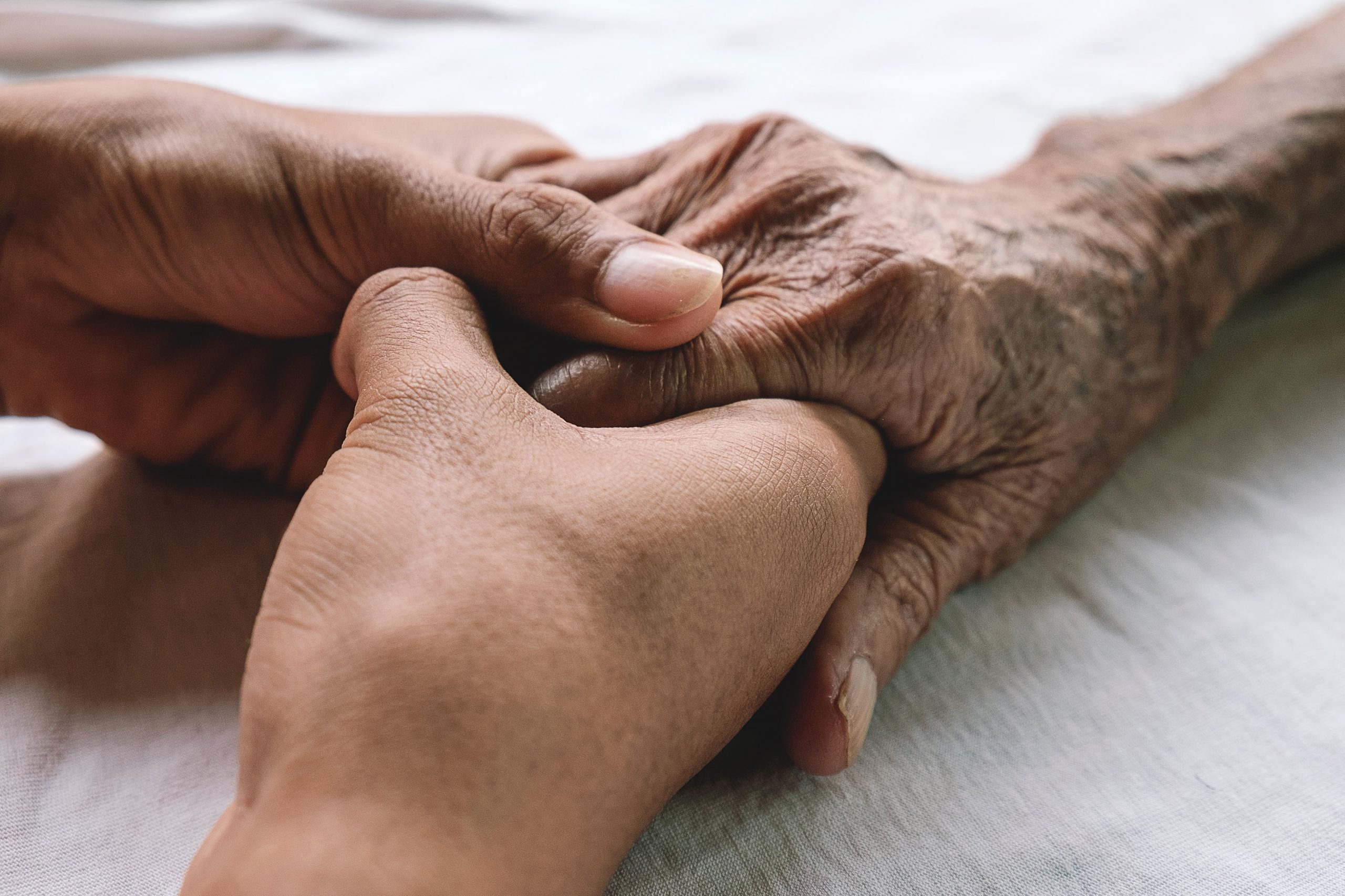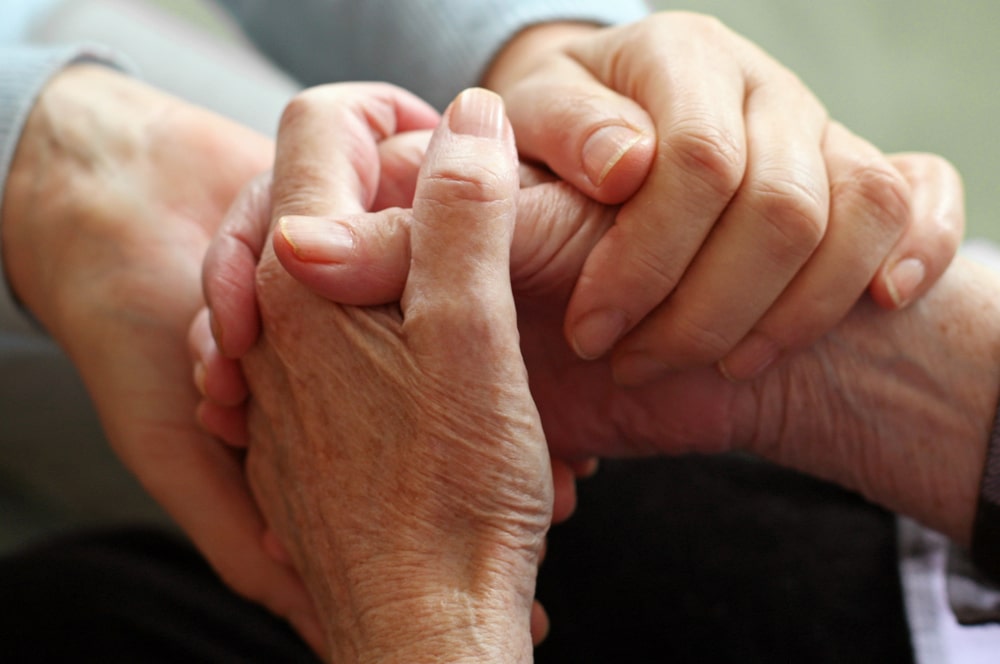
If you’ve recently lost a loved one or have a loved one currently in hospice care, you may be wondering about how “normal” your feelings of grief are. It’s important to realize that grief is different from person to person, so your grief journey is going to look different than anyone else’s (including your close family members). While many people experience “normal grief,” it’s possible that your experience may be different. If your feelings of grief become more intense over time and start to impact your ability to resume your duties at work and at home, then you may be experiencing complicated grief. Let’s take a closer look at what complicated grief is and how to identify this potentially serious detour in the grieving process.
First, Let’s Define Normal Grief
Before we dive into complicated grief (also known as prolonged grief), it’s important that you understand what normal grief looks like. Put simply, grief is your natural human response to the loss of someone or something you love. When you lose someone or something you love, you’re going to experience grief. The emotions of grief vary greatly – sadness, anger, guilt, relief, shock – but these are all normal responses to loss and are healthy signs of grief.
What Is the Normal Progression of Grief?
Immediately after a loss, you will likely experience acute grief. This is the initial period of time just after a loss when your emotions are unpredictable and you can’t concentrate on anything but the loss. In most cases, after a period of time, you are able to move into integrated grief. This is when you have learned to accept the reality of the death, have found ways to cope and adapt to your new way of life, and have begun to hope again, finding renewed meaning and purpose in life. Moving from acute grief (intense initial feelings of loss) to integrated grief (a reconciliation to the loss) is a natural progression through the grief journey.
This movement or reconciliation takes time, but it’s characterized by a lessening of the intensity of your grief feelings. You may bounce back and forth between sadness, shock, and anger for a little while, but then, your grief feelings gradually lessen until they become an ache that only occasionally comes back to visit you (normally around special days and events).
What Is Complicated Grief?
If after some time, your grief seems to be intensifying until all you can think about is the loss you’ve gone through, then you may be dealing with complicated grief.
With complicated grief, a loved one’s death takes center stage in your life. Many of those suffering from complicated grief are unable to resume normal life and are stuck in a state of intense mourning.
Complicated grief may require more of your time and attention and the help of qualified professionals who can walk with you get through a very difficult time.
If six months or more have passed since the loss and grief feelings have only gotten worse, then it’s time to consider seeking help from qualified professionals. Six months is not a hard and fast rule, as some losses will take years to recover from, but it is enough time to determine whether grief symptoms are lessening or worsening.
Symptoms of Complicated Grief
At first, many of the symptoms of complicated grief look like normal grief. However, if grief indicators worsen as time passes, then it could be a case of complicated grief. Here are a few symptoms to look out for months and even years following the loss:
- Intense sorrow, pain, or pining over the loss, focusing on little else
- Problems accepting the reality of the death
- Strong attachment to mementos/reminders or a strong avoidance of them
- Numbness, detachment, bitterness, and/or being easily irritated
- Feeling that life holds no meaning or purpose
- Trouble carrying out normal routines, including personal hygiene
- Increasing isolation and withdrawal from normal activities
- Denial and defensiveness when asked about the grief
- Guilt over feeling that they did something wrong, could have prevented the death, or should have died along with the loved one
Who’s Susceptible?
While doctors and mental health professionals are still learning about complicated grief, it’s believed that as much as 20% of those who lose a loved one will experience complicated grief. Unfortunately, no one is sure what causes complicated grief.
The cause may be related to your environment, personality, genetics, or chemical makeup. Complicated grief occurs more often in women and particularly those of an older age. Outside these factors, other circumstances may increase a person’s risk of experiencing complicated grief, including:
- The death was shocking, unexpected, violent, or premature
- There was more than one death in a short period of time
- You witnessed the death or suffering with the deceased (as with a long illness or hospice)
- You had a close or dependent relationship to the deceased person
- Social isolation or loss of a support system or friendships
- Past history of depression, separation anxiety, or post-traumatic stress disorder (PTSD)
- Traumatic childhood experiences, such as abuse or neglect
- Other major life stressors, such as major financial hardship
Seeking Help
It’s best to seek professional support and care when dealing with complicated grief. If you find that you or a loved one have been unable to make distinct progress toward integrated grief and that your grief feelings are intensifying (no matter how long it’s been), consider whether now is the time to seek help so that you can come to terms with your loss and reclaim a sense of acceptance and peace.
At first, you may think you can handle things, but over time, complicated grief can affect you physically, mentally, and socially. Without the proper treatment, complications could arise, including:
- Depression
- Suicidal thoughts or behaviors
- Anxiety, including PTSD
- Significant sleep disturbances
- Increased risk of physical illness, such as heart disease, cancer, or high blood pressure
- Long-term difficulty with daily living, relationships, or work activities
- Alcohol, nicotine use, or substance abuse
At this point in time, it’s not clear how to prevent complicated grief. However, counseling and grief therapy soon after the loss (especially for those in an at-risk group) is thought to help curb the severity of complicated grief and put you on the path to healing.
What Can Family and Friends Do to Help?
Because those suffering from complicated grief are susceptible to additional complications like depression, anxiety, or sleep issues, the best option is to speak with a professional, who can act as a guide through the entire journey toward recovery.
However, as family and friends, you can do something to help!
Offer your full and loving support to the person dealing with complicated grief. Be there to talk. Be encouraging. Bring small gifts or tokens of your love. Actively listen and don’t interrupt. Plan positive activities, like taking a walk or doing something they’ve always enjoyed.
They don’t need you to try to fix them; they need you to accept them where they are right now. Be there for them. Realize that complicated grief is difficult on both of you and the road to recovery may be long and difficult. But it is achievable! When we do the work of grief, we can find a way to reconcile ourselves to loss and find new hope and meaning for the future.





































Recent Comments